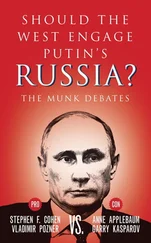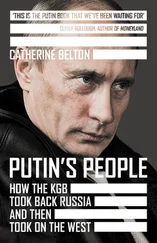The mood of Moscow was one of elation, bordering on exaltation. Referring to the three young men, one of them Jewish, who had lost their lives in the struggle for Moscow, one Russian woman said to me in conversation: “There can never be anti-Semitism in Russia again now that a Jew has given his life for Russia’s freedom!”
For Putin these were not days of exaltation but, he says, ones of agonized choice and self-definition. He was torn. The goal of the coup—“preserving the Soviet Union from collapse—was noble.” That, however, was not enough. “As soon as the coup began, I immediately decided whose side I was on. I knew for sure that I would never follow the coup-plotters’ orders. I would never be on their side. I knew perfectly well that my behavior could be considered a crime of office. That’s why, on August 20, I wrote a second statement resigning from the KGB…. All the ideals, all the goals that I had had when I went to work for the KGB, collapsed.” [137] Putin, First Person , p. 93.
The bond with Sobchak grew tighter in those tense days when people in Russia were making the choice that would decide their own future and the country’s. In St. Petersburg, Sobchak played a role similar to Yeltsin’s. “Speaking from the steps of the Winter Palace, he gave heart to the thousands who did not want to see the clock turned back,” wrote the Economist in his obituary. “Deploying weapons no more violent than his personality and his command of language, he persuaded the commander of the armored troops moving on the city to withdraw.” [138] Obituary in the Economist , February 24, 2000.
But in the midst of trauma there was a certain grotesque levity. “Once I saw the faces of the coup-plotters on TV,” says Putin, “I knew right away that it was all over.” [139] Putin, First Person , p. 93.
At the junta’s one and only press conference, the “leader,” drab Soviet vice president Gennady Yanayev, kept sneezing into a handkerchief. Dictators should not make their debut blowing their noses.
In an iconoclastic rampage Russians began tearing down the images of Soviet rule. The immense statue of Felix Dzerzhinsky, founder of the secret police, was torn from its pedestal in front of KGB headquarters on Lubyanka Square. Though heavy, it proved hollow. Some, but not all, of the statues of Lenin were toppled. One of Stalin was struck in the face with a sledgehammer. All of them were taken to a park near an art museum, the New Tretyakov Gallery, and strewn on the grass in a random fury.
No one had any idea what tomorrow would bring, though it was clear the USSR’s days were numbered. What would the next Russia look like? Whose voices would be heard?
Wandering on the grass where the statues were strewn I saw an older man in glasses and a sweater-vest who looked like a retired shop teacher. When he opened his mouth to rant he revealed steel-plated teeth, common in the USSR: “They were nearly all kikes, the Communists. Lenin was part kike on his mother’s side and the rest of him was Asiatic. And the capitalists are all kikes too, and now they’re trying to finish up what the Communists didn’t get around to doing. The kikes want the death of Russia!” [140] Richard Lourie, “Window on Russia,” Boston Phoenix , October 18, 1991.
But there were other voices, equally passionate and brighter with intelligent hope. As winter and the fear of hunger crept into the cities, a TV producer I knew, a great battleship of a woman who issued opinions like salvos, said: “We are so happy, you can’t imagine. We did something wonderful. We stood up for freedom. And now we are free. Yes, maybe there will be starvation this winter but at least we’ll be starving as free people. We’ve starved before but we’ve never been free before.” [141] Ibid.
* * *
Other stars besides Putin’s were on the rise and moving with greater speed than his, though his, of course, would in time eclipse them all. Like him they came out of nowhere, a good sign, proof that Russia’s long-suppressed ambitions and creative force had been loosed. For people alert to the moment and its possibilities there were three questions: how best to dismantle the old system; what to build in its place; how to get rich in the process.
Rules, law, and the rule of law were never very much respected anyway in Russia, which had “a décor of laws,” as the dissident writer Andrei Amalrik put it. [142] Andrei Amalrik, Will the Soviet Union Survive Until 1984? (New York: Perennial Library, 1970), p. 23.
Proverbs spoke of the law as a cart that went where the driver wanted. In the transition between systems there were fewer rules and guidelines than ever. Clear-eyed ambitious men entered that vacuum with great energy. Everyone had stolen from the state when it was a going concern, and now that it had collapsed there was even less reason not to loot the ruins.
Others were more intent on dismantling the system than on exploiting the transition. One of those was Anatoly Chubais, who was born in 1955 and was thirty-six when the USSR fell. His father was a Soviet army colonel, a World War II vet, and a believer in Marxism who lectured on it to the troops. A lanky redhead, Chubais was drawn to economics, a subject that had been his mother’s major, but she stayed home with the children and never practiced her profession. Chubais, who would quickly become known as “the most hated man in Russia” [143] C. J. Chivers and Erin E. Arvedlund, “Head of Russian Electricity Monopoly Survives Ambush,” New York Times , March 3, 2005.
for the pain he inflicted on the country during the shock-therapy phase, did not himself come swiftly to his new worldview. In the beginning he was an economics Ph.D. student in Leningrad trying to figure out why command-and-control economies were always economies of shortage. He gradually came to the conclusion that only prices set by the open market could provide realistic and reliable information as to what goods and services were needed. But, once convinced, he had something of his father’s Soviet steel in his convictions.
He was a natural for Mayor Sobchak’s team and quickly became one of its top economic advisers, dealing with the attempt to create a Free Economic Zone in Leningrad. That was in 1990. By the end of 1991, Chubais had moved to the center of power, Moscow, and the highest echelons of President Yeltsin’s government. He was appointed chairman of the Committee for the Management of State Property, which was in charge of privatizing state property. Chubais became the “architect of the largest transfer in history of state-owned assets to private hands,” as David Hoffman put it in The Oligarchs , by now a classic text. [144] David Hoffman, The Oligarchs (New York: Public Affairs, 2002), p. 5.
No one knew what they were doing, for two very good reasons. First, the people in charge of dismantling the Russian economy were mostly men in their early thirties who, apart from receiving an education, had not done very much at all, certainly nothing on the order of running large enterprises. Second, what they were doing was historically unprecedented. It also contradicted the Marxism on which they had all been reared and that held that Communism was the stage of development that came after capitalism, not vice versa. And so turning Communism into capitalism was as absurdly impossible as trying to turn fish chowder back into fish.
But Chubais and his ilk had strongly held attitudes, goals, and assumptions. The attitude was a visceral hatred and contempt for the system. “I hate the Soviet system. There is little in life I have hated like the Soviet system,” said Chubais. [145] TASS, Politika, June 16, 2015, tass.ru/ronika/2042091.
The goal was the absolute destruction of the Soviet economy and thus the Soviet state by putting the USSR’s assets in private hands. The assumption was that the laws of the market would sort things out. The inefficient would die away, the efficient would thrive. Private ownership and personal freedom were two aspects of the same thing. Russia would leap into both democracy and capitalism all at once.
Читать дальше
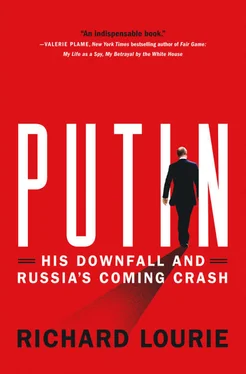

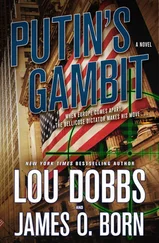
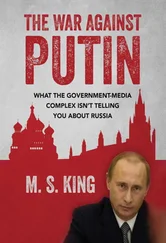
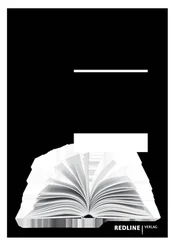
![Stephan Orth - Behind Putin's Curtain - Friendships and Misadventures Inside Russia [aka Couchsurfing in Russia]](/books/415210/stephan-orth-behind-putin-s-curtain-friendships-a-thumb.webp)

